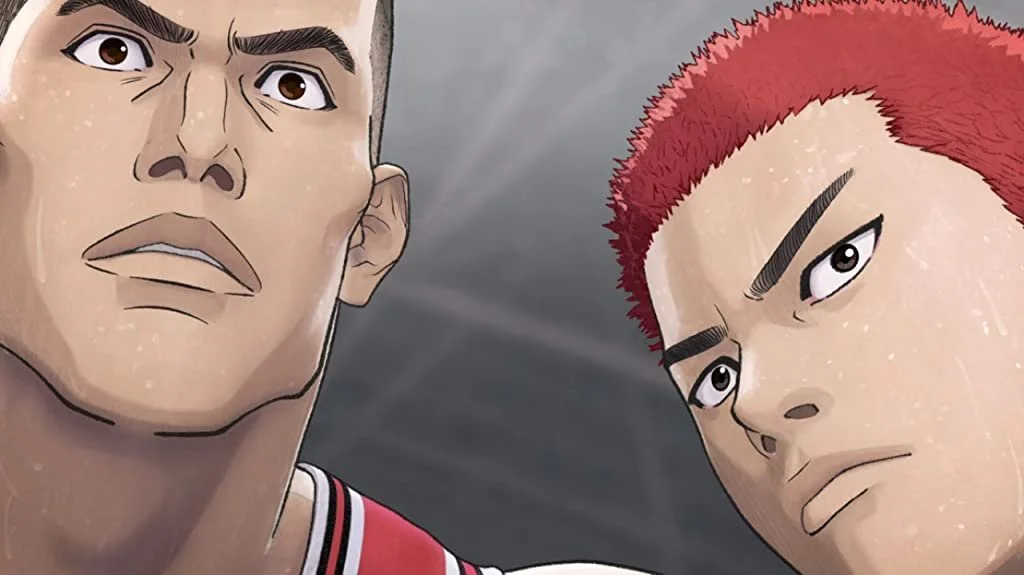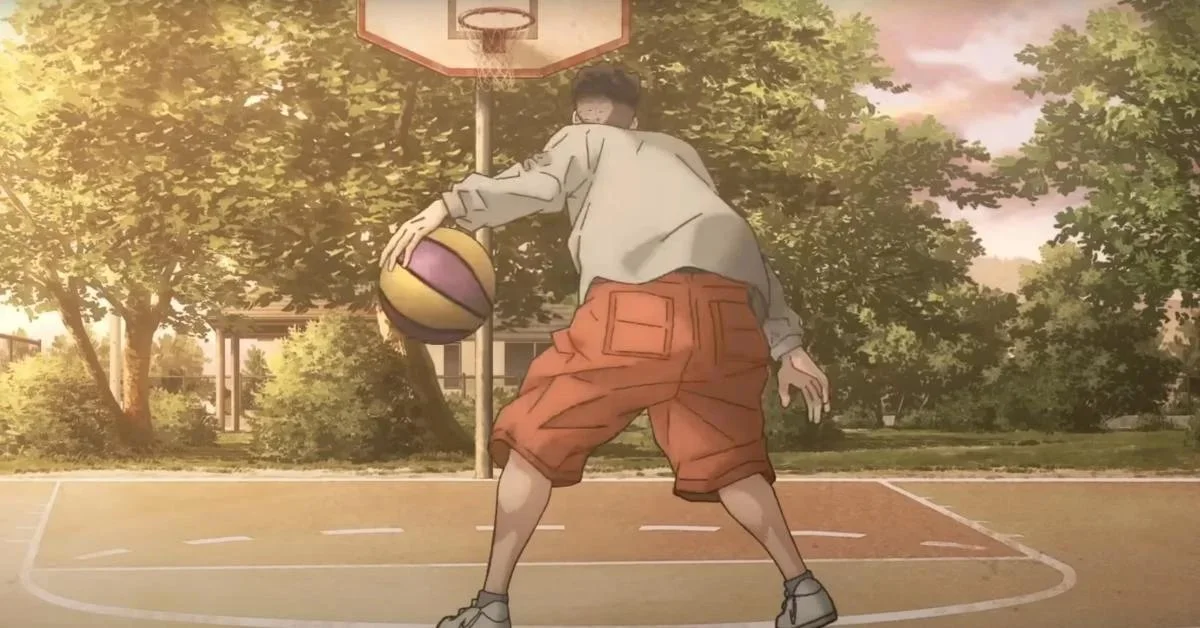Nuthin’ but Net
Swoosh. Rookies and veterans can both get into Takehiko Inoue’s Hoops saga capper.
the First Slam Dunk
Director: Takehiko Inoue • Writer: Takehiko Inoue
Starring [Japanese]: Shugo Nakamura, Subaru Kimura, Kenta Miyake, Shinichiro Kamio, Jun Kasama, Mitsuaki Kanuka, Toru Nara, Shunsuke Takeuchi
Japan • 2hrs 4mins
Opens Hong Kong January 12 • IIA
Grade: B+
Anyone who watched the TV series of Friday Night Lights (which starred Michael B Jordan and Jesse Plemons at one point) will know it wasn’t really about football. Same goes for Rocky. That was only tangentially about boxing. And Eight Men Out was about labour, exploitation and the forces that impact the working class, as well as baseball. The list goes on, because sports are among film and television’s favourite metaphors. Takehiko Inoue’s wildly popular, 170 million-selling basketball ’90s manga, Slam Dunk fits nicely within the sport-as-life-analogy genre. It’s a manga, so of course there was a series, which got ahead of the source material, and so never really finished; the show’s producers opted not to make shit up without the creator (ahem, looking at you Game of Thrones). So, finally, about 30 years after the comic made Air Jordans a thing in Asia – not Michael Jordan, I’ve been told in no uncertain terms – The First Slam Dunk arrives to complete the story.
Not having read Slam Dunk, or seen the series doesn’t mean you can’t go with a friend who did and enjoy it just as much. Writer-director-mastermind Inoue has pulled off what many Marvel/DC films could not: Welcome non-readers into its world. Some gorgeous 2D art, a clever framing device and smartly deployed flashbacks make The First Slam Dunk a warm blanket for fans and an efficient crash course for newbies that’s also an engrossing, quasi-coming-of-age underdog sports thriller.
Running approximately the same length as an average NBA game, The First Slam Dunk unfolds over the course of Shohoku high school’s championship basketball match against elite Sannoh. If there’s a protagonist it’s Ryota Miyagi (Shugo Nakamura, doubling as a fresh entry point for an old property) and his search for some kind of equilibrium in the wake of his brother’s death and his mother’s alienating grief. Also in the game are redhead Hanamichi Sakuragi (Subaru Kimura), the series “star” and one-time thug. He’s not Shohoku’s most skilled player, but he’s its most tireless. Then there’s captain Takenori Akagi (Kenta Miyake), the heart and soul of the team and who is absolutely coded Black and nicknamed Gorilla (!) in an unfortunate vestige of ’90s cluelessness. Kaede Rukawa (Shinichiro Kamio) is the “youngster” who most looks like an anime boy, and was once Sakuragi’s nemesis because he’s a chick magnet. He’s the lone wolf player who goes his own way until he doesn’t. Rounding out the starting five is Hisashi Mitsui (Jun Kasama), who has a wicked three-pointer and exists in a détente with Miyagi after a nasty throw-down. It’s a sports movie, so Shohoku’s guys have counterpoints on the opposing team, among them Masashi Kawata (Mitsuaki Kanuka), another “Black” player that gets in Akagi’s head, and ultra-skilled Eiji Sawakita (Shunsuke Takeuchi), who gets under Rukawa’s skin.
There’s a fine line between a cliché and an archetype utilised to explore growth, and luckily Inoue knows where that line is. He peels back the layers on his characters minute by minute, ticking along with the scoreboard clock, dropping out of the game when the moment to enlighten us about their motivations arises organically. It’s a graceful way to ratchet up the stakes for the team and, more importantly, the empathy for the boys. You don’t even realise the slow dawning of how their interior lives impact each of them until all is said and done. Similarly you don’t realise how invested you get in their stories. The history between Miyagi and Mitsui, Sakuragi’s reform, what the game and the team means to each, emerges gradually, and makes the storytelling that much richer for it. Wisely, Inoue jettisons the series’ romantic entanglements almost entirely, keeping one brief reference purely to move the plot.
But despite the emotional revelations and personal introspection, there’s some truly exciting basketball action on display, captured in beautiful, soft images, the sound of squeaking sneakers and a kick-ass soundtrack. Inoue’s painterly frames revel in little details (sweat drops, the swing of the net) that give the game meaning, even for non-hoops fans. C’mon. That buzzer beater shot is truly a white knuckle moment. Jordan couldn’t have done it better. — DEK



